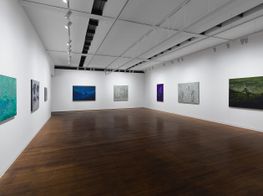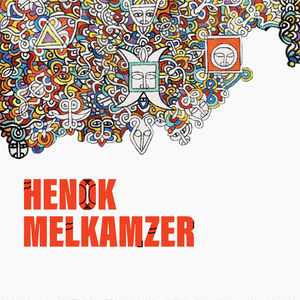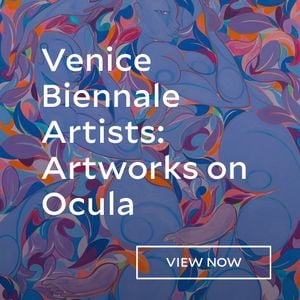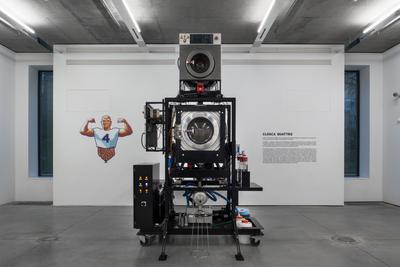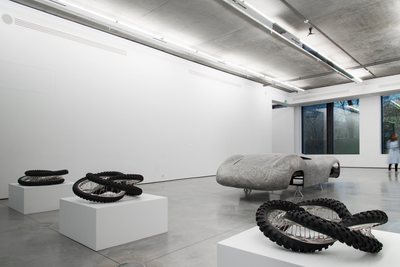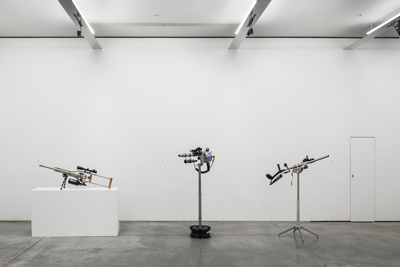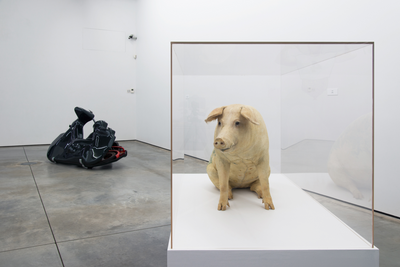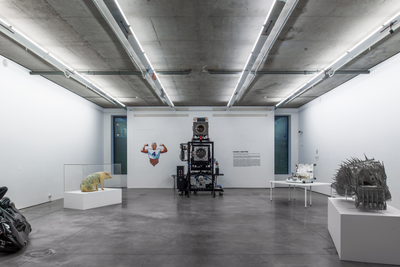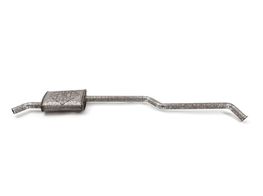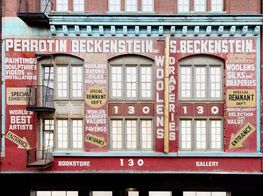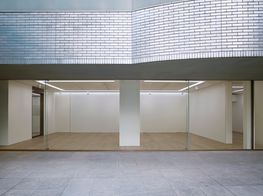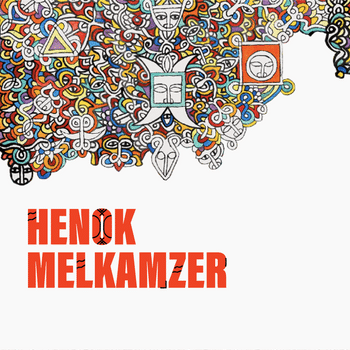Wim Delvoye on his art, censorship and the future
At 53, Belgian artist Wim Delvoye continues to employ the shock factor with abandon. Moving between the sacred and the profane, inflections of gothic drama and high technology imbue the artist's drawings, sculptures, and installations. He frequently swings from fine art to the decorative, applying Belgian ornamental elements such as coats of arms or porcelain patterns to objects such as shovels, ironing boards, or—in Gas Cannisters (1988)—a collection of white canisters embellished with blue and white pictorial scenes, reminiscent of Delftware.
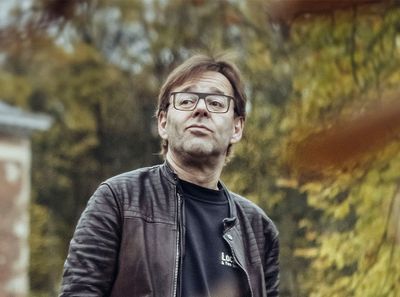
Wim Delvoye. Courtesy the artist.
Over the years, the decorative has swung to the downright outrageous, with Delvoye realising baffling concepts on a broadening scale. The artist is perhaps most well known for his complex installation Cloaca, a machine that has been reconstructed in multiple iterations since 2000, that is 'fed' food, replicating the human digestive process to create faeces. The mechanical organ has been pampered throughout its museum tours, attended to by local caterers during its run at Casino Luxembourg–Forum d'art Contemporain (30 September 2007–6 January 2008), and fed by Lyonnais chefs during a stint in the French capital of gastronomy in 2003—efforts that contradict its futile production: a visual manifestation that supports the artist's infamous statement that 'all art is useless'.
Other provocative works include his Sex-Rays (2002)—a series of x-rays of people performing sexual acts—and tattooed pigs, for which he began with tanned skins and graduated with a full-scale Art Farm of live, decorated pigs outside of Beijing. Established in 2004, the farm ran until 2010 in a country the artist claims as more accepting of his practice. From the Louis Vuitton monogram to skulls, hearts, and crosses, the pigs—who were sedated and lathered in Vaseline before having their hides gilded—were purchased while still alive by collectors who procured the skins once the animals died of old age.
Delvoye continues to exhibit around the world, from China to Iran—where a retrospective of his work at the Tehran Museum of Contemporary Art in 2016 marked the first time since the revolution that work by a non-Iranian artist was shown in the country. Between 9 November 2018 and 9 February 2019, Gary Tatintsian Gallery in Moscow presented embossed, cut, and twisted objects that employ neo-Gothic tracery and Middle Eastern designs, as in the case of the late-1950s' Maserati 450S racing car for which the artist invited Iranian artists to create its intricate patterns. Also on view is the tattooed pig Sylvie (2006), looking out from a glass case on a plinth with beady black eyes; and a set of three bicycle tyres, twisted into the Mobius puzzle, thus rendering them ineffective.
Sergey Guskov spoke with the artist on the occasion of his show in Russia, and his vision for art in the future.
Your artworks often take on a machinic dimension. How do you visualise the role of technology in your art?
Nowadays, many people are like the 18th-century Luddites who were afraid of progress and went to the factories to destroy machines. They thought their life was in danger. Modern Luddites want to stop IVF, genetic engineering, AI, and so on. That's not me. I love computers. I adore anything new. My question is not whether it's good or bad; my question is whether it is new. If it is, do it and ask questions later. We are living in an amazing time when everything is changing. It's going to be a big transition. I'm very futurist, although my work doesn't look futurist.
Do you have a vision of art in the future?
I'm always visiting places such as YouTube to look for new art, not galleries or museums. I'm expecting new art to come from people who are only 17; their art will remain on the internet and won't go to the galleries. I think it's already happening, but a platform hasn't formed yet.
We are now completely emancipated; technology allows for total freedom of expression. We can design and print books ourselves, we can photograph. When I started making art, all of these practices were specific to different people. Now everybody can be a publisher, photographer, and so on. There won't be galleries or museums in the future, people will organise themselves and production will be enormous. If you want to change art, you have to change everything. One's means of production, distribution, and communication should be absolutely new. A new kind of society will be necessary to make a new kind of art, and we are close to this turning point. Those who are successful now won't be successful in 20 years.
You are part of a generation of artists whose practice is within the global contemporary art sphere. Recently, there has been a return to regionalism, and many artists have become more isolated in local scenes. How do you feel about this new direction?
I'm an old-fashioned globalist even if regionalism has become the norm. I still completely believe in a united world, not in ideologies such as 'America first'. I'm a crypto-modernist. I believe in progress. I believe that art can improve society. But I'm also a glocalist like McDonald's, which has adapted to the market tastes of each country in which it exists. For me, regionalism automatically leads to lower quality; to more consumable and easy art, whereas globalism allows you to do things that are really extreme. In the mid-1960s, there were lots of local music bands who had to adapt their music to some lower level in order to reach a bigger audience in their own country. The Rolling Stones didn't adapt, they do what they like and have made amazing music.
You have had many international exhibitions. In the past, you have said that the West is in decline, and Russia is freer than Belgium. Aren't you afraid that some kind of sanctions might be imposed on you?
For ten years, Belgium has looked for problems and brought me to court for stupid things, such as cleaning and renovating the old castle in which I live. They tried to make a case against me, but their arguments are based on nothing. They have copy-paste opinions. They think I'm a dangerous man just because I speak and they don't agree with what I say. Even my mother and sister don't agree with me. I'm alone.
They say that journalists in Russia and Turkey are in danger. But in all these countries, they have critical authors despite it being very dangerous. In Europe, where the press is free, they all write the same—it's all copy-paste: 'Macron is good, Le Pen is bad.' Maybe I agree with that, but I would like to see just one newspaper in France stating that Macron is an asshole and Marine Le Pen is the future. Twenty-one percent of people are now voting for her, and approve of her. There is no journalist who represents the majority. In Russia and Turkey, journalists are disappearing or being sent to jail, but they are still courageous. In Europe, journalists are free to write what they like but they have 100 percent party line consensus. There is no journalist in Europe who says that the European Community is bad. And yet, people vote against this organisation. They should speak about the problems of the European Community but they don't—they are less diversified than Russian or Turkish journalists. You have more pluralism here than in Europe.
What is your opinion on the freedom of the artist in terms of censorship?
For me, it's OK because I adapt to each country. I usually take people's views into account, however I sometimes make mistakes. In Iran, I wanted to respect Islamist faith and not show pictures of Jesus, yet they asked me why I wasn't showing the work, and that I was in fact allowed to show it. If people say they don't like it, I'll take it away.—[O]

